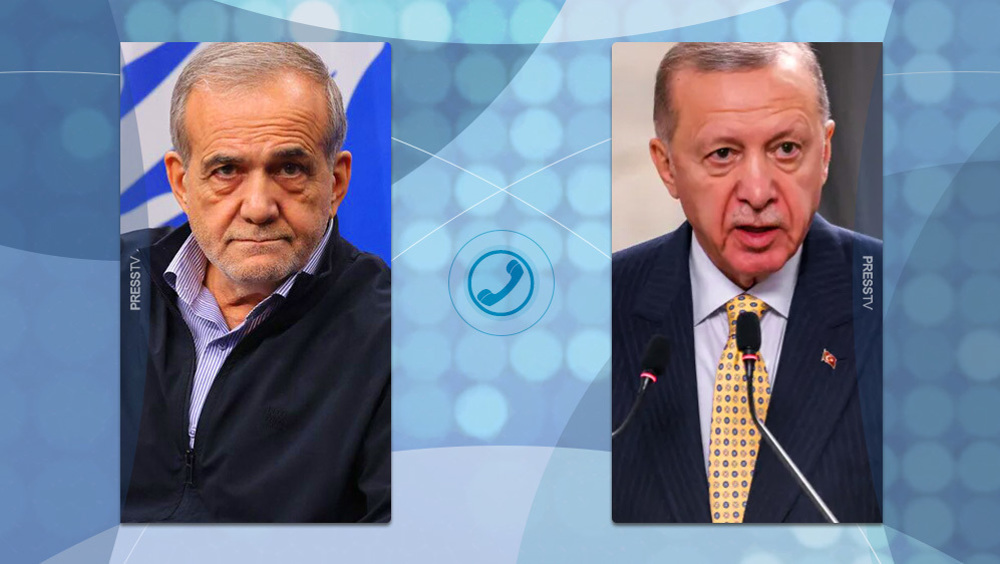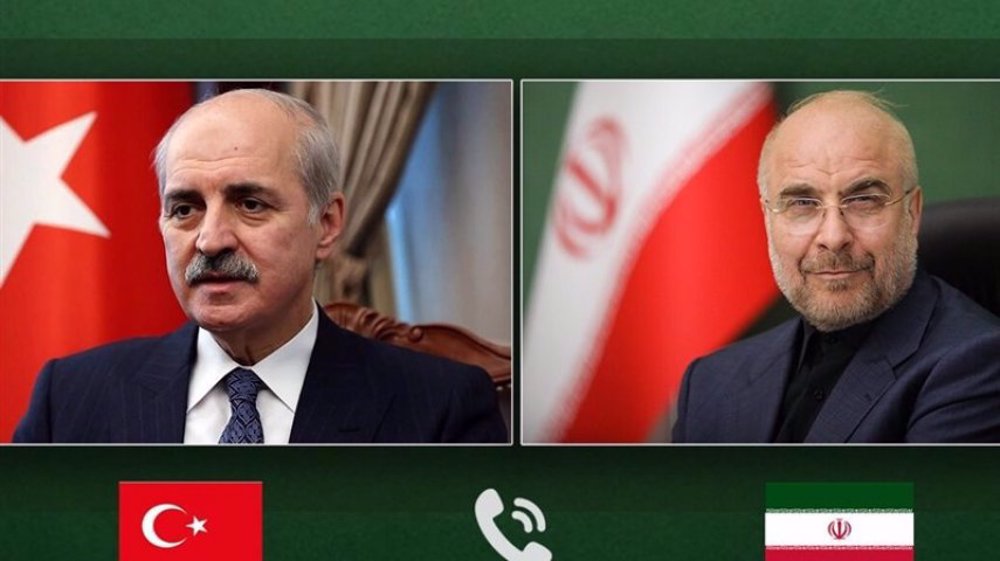Ankara looking for alternatives to US F-35 fighter jets: Turkey’s Erdogan
Turkish President Recep Tayyip Erdogan says Ankara is looking for alternatives to the US Lockheed Martin F-35 fighter jets after Washington suspended Turkey’s membership in a joint production program of the warplane.
The Turkish leader made the comment during a speech he delivered at the graduation ceremony of Milli Savunma University in Istanbul on Saturday, saying that the F-35 fighter jets are yet to be delivered to Turkey, even though the purchase had been completed.
“We can't wait to see what happens to us with our hands tied,” Turkish state-run Anadolu news agency further quoted Erdogan as saying.
The administration of US President Donald Trump had threatened to expel Turkey from the F-35 fighter program altogether if it acquired the S-400 missile systems from Russia. The US also halted any new training for Turkish pilots on the advanced aircraft.
Moscow and Ankara finalized an agreement on the delivery of the S-400 in December 2017.
Turkey began receiving deliveries of the surface-to-air S-400 systems on June 12 and the deliveries are set to continue through April 2020. It received the second batch of the Russian air defense system on Tuesday.
Ankara later said Turkey would meet its defense needs elsewhere if Washington did not provide the country with the fifth-generation and multi-role combat aircraft.
Last week, the Turkish president vowed closer military cooperation with Moscow during a visit to Russia’s MASK air show. He also said Russian-made Sukhoi-35 and Sukhoi-57 could be alternatives to F-35 warplanes.
NATO says the S-400 could compromise its F-35 stealth fighter jets. Ankara rejects the claim.
Elsewhere in his speech, Erdogan warned that the Turkish army may launch a unilateral cross-border offensive into Syria “in weeks” if Turkish troops do not control a “safe zone” that Turkey and the US had agreed to set up.
Earlier this month, Ankara and Washington agreed for a safe zone in the northern part of Syria intended to manage tensions between Turkey and militants of the People's Protection Units (YPG), a US-backed Kurdish group in northern Syria, over the border in war-torn Arab country.
“Turkey has no time and patience and it wants safe zone to be built along eastern Euphrates line, along Syria, as soon as possible,” Erdogan said, adding, “Three weeks later, there is last chance, when we are holding meetings in the US on the sidelines of the UN General Assembly session.”
The YPG plays as the backbone of the so-called Syrian Democratic Forces (SDF), an anti-Damascus alliance of predominantly Kurdish militants.
Ankara regards the YPG as a terrorist group and views it as the Syrian branch of Turkey’s homegrown Kurdistan Workers’ Party (PKK), a terrorist group that has been fighting for an autonomous region inside the Anatolian country since 1984.
Turkey expects the creation of a 32-kilometer (20-mile) safe zone in northern Syria, and has stressed that it wants the YPG cleared from the region.
The Syrian government, however, has categorically rejected any deal between Turkey and the US on a buffer zone in northern Syria, describing it as a violation of its sovereignty.
Ankara has already launched two operations in northern Syria. The first offensive dubbed "Euphrates Shield" began in August 2016 to stop the advance of Kurdish militia forces.
Then in January 2018, Turkish military forces launched another cross-border military operation inside Syria, code-named “Operation Olive Branch,” with the declared aim of eliminating YPG militants from northern Syria, particularly the Afrin region.
VIDEO | Venezuelans demand return of their president Nicolás Maduro
Muslims facing ‘major confrontation’ led by US and Israel: Hezbollah chief
Palestine Action activist at risk of death after beginning thirst strike in UK jail
VIDEO | South Korean supporters of Palestine slam Trump's 'Board of Peace'
Rights group: Israel continues to torture 2,000 Gaza abductees despite truce
‘Another horrific shooting’: Man killed during ICE crackdown in Minneapolis
Trump issues severe warning to Canada over potential China deal
VIDEO | Press TV's news headlines













 This makes it easy to access the Press TV website
This makes it easy to access the Press TV website